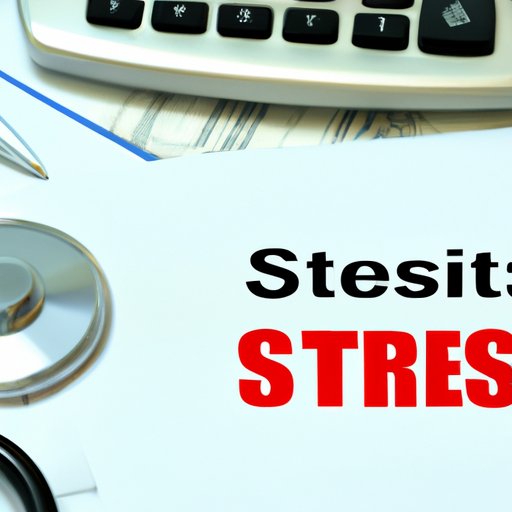
How Much Does a Stress Test Cost?
Stress tests are a common medical procedure used to diagnose heart problems. The test involves measuring the heart’s response to physical exertion. While stress tests are widely available, the cost can vary greatly depending on several factors. In this article, we will discuss the cost of stress tests, what factors affect the price, and how to afford them.
Breaking Down the Cost of a Stress Test
The cost of a stress test can vary widely depending on several factors. These include location, the type of test used, and the healthcare provider. Generally, stress tests can range from $200 to $5000. The cost typically increases with the complexity of the test and where it is performed. For example, a nuclear stress test (which uses radioactive substances to produce images of the heart muscles) can be more expensive than a standard treadmill stress test.
One of the main factors that affect the cost of a stress test is the location where the test is performed. If the test is performed in a hospital, the cost may be higher due to overhead costs. However, if the test is performed in a medical clinic, it could be less expensive. Additionally, geographic location plays a significant role in the cost of healthcare. For example, a stress test performed in a large city area like New York City will likely be more expensive than in a smaller city like Iowa City.
Stress Test Costs and Insurance Coverage
Typically, stress tests are covered by insurance, but the cost ultimately depends on your plan’s coverage. In general, health insurance will cover the cost of the stress test if it is necessary to diagnose or treat a health problem. In some cases, you may be required to pay a copay or deductible. To ensure coverage, patients should contact their insurance provider to determine what is covered and if pre-authorization is required.
It’s important to note that not all insurance policies cover every type of stress test. For example, some policies may limit the number of stress tests per year or require patients to use specific providers. This is why it’s vital to know your policy’s coverage before committing to a procedure.
Are Stress Tests Worth the Cost?
While stress tests can be costly, they are essential for accurately diagnosing heart problems. Conducting a stress test regularly can help detect underlying conditions and develop a clear course of treatment. One of the primary benefits of the stress test is it tags any underlying cardiovascular problems. These can be life-threatening if not taken care of immediately.
However, stress tests are not without limitations. For example, stress tests are sometimes unable to detect heart problems, making them an imperfect method of diagnosis.
Affording a Stress Test
Even with insurance, the cost of a stress test can be a significant burden on some patients. However, low-cost or free stress tests are available through specific programs. Health clinics and not-for-profit organizations offer testing assistance to those who cannot afford them. Government programs like Medicare can also help cover the cost of a stress test if you are eligible. Patients are encouraged to contact their local health department for information on available programs that could help with the cost of a stress test.
Understanding the Price Differences Between Different Types of Stress Tests
As mentioned above, the price of stress tests can widely vary depending on the type of test used. For example, a standard treadmill stress test can cost from $200 to $1000, while a nuclear stress test can cost up to $5000. The difference in cost is primarily due to the testing procedures used for each type of test. More elaborate tests can be more expensive to perform.
Negotiating the Cost of a Stress Test
Patients can take several steps to negotiate the cost of a stress test with their healthcare provider. One approach is to ask for a discounted fee, especially if you are paying out-of-pocket. One could compare prices between different providers to find one that offers a better cost; another approach is to ask your insurance provider about the lowest-cost facility. Patients could also ask the hospital about payment assistance programs available to low-income patients or uninsured patients with high medical bills.
Conclusion
Stress tests are essential for detecting heart conditions, including potentially life-threatening conditions. However, patients can face high costs to take the test, and understanding the cost factors can help patients make informed decisions. Patients can negotiate prices or find alternative options to help them afford the test. Patients are encouraged to consult their insurance provider to verify coverage and eligibility for alternative programs.





